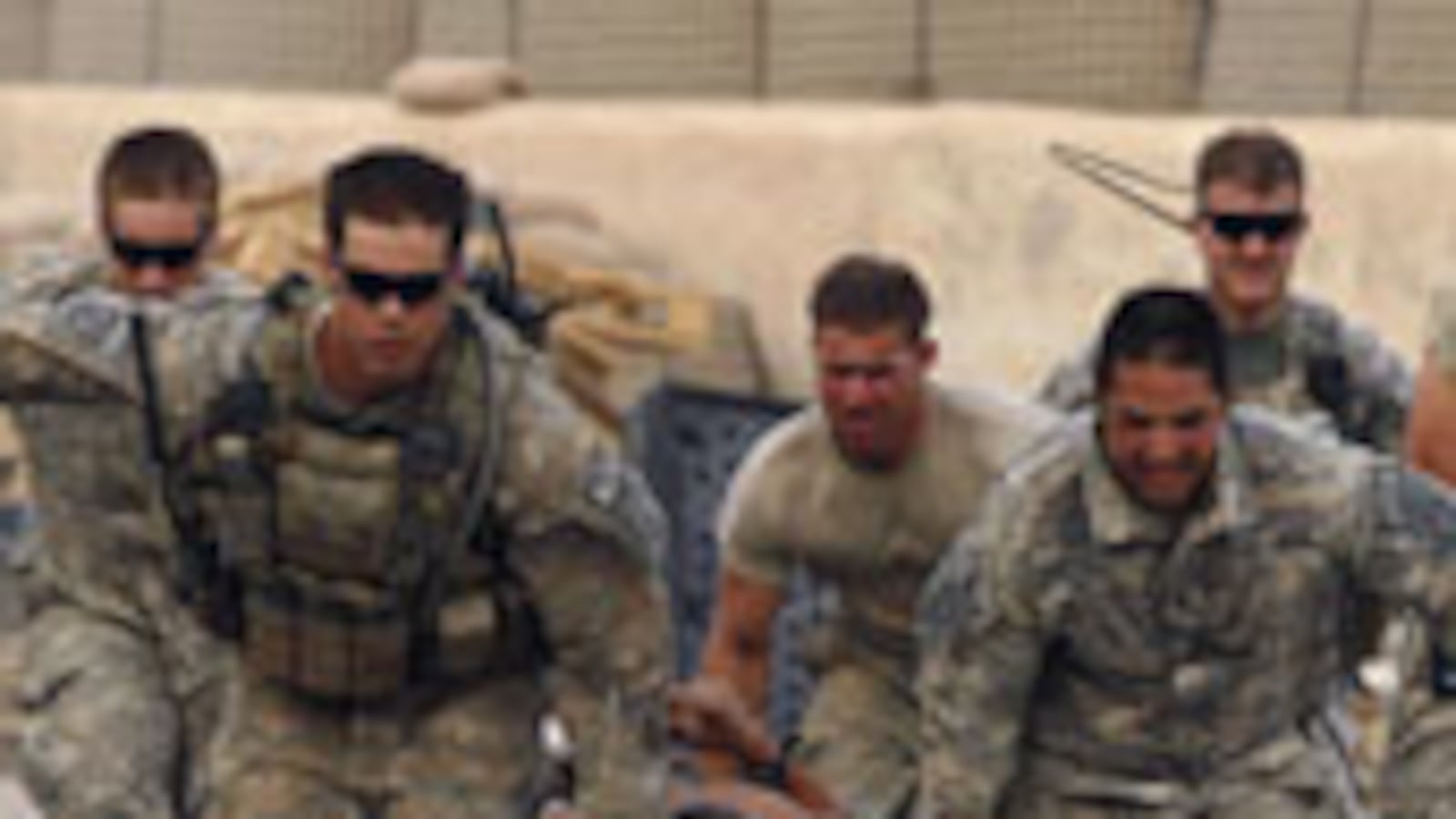
Here’s an Afghanistan quiz:
Who committed professional suicide-by-quote last week, leaving his post in Afghanistan after expressing criticism about the way the war is being conducted?
Here’s a clue: I’m not thinking of Gen. Stanley McChrystal.
Give up?
The answer is Sherard Cowper-Coles. Readers may be forgiven for not guessing it. In the U.S. press, at least, the departure of the top British diplomat received scant notice.
Britain’s special envoy to Afghanistan and Pakistan, Cowper-Coles had clashed repeatedly with senior U.S. officials, openly stating that counterinsurgency efforts were failing and that, instead, the allied forces should talk to the Taliban.
No one has articulated a clear policy, says Juan Cole. Instead, the leadership has been like “the gang that couldn’t shoot straight.”
British officials denied the Pashto-speaking Arabist had been asked to step down, but said he was taking an “extended leave.”
Two days later, Gen. McChrystal followed Cowper-Coles out the door and, on Friday, the Los Angeles Times reported that Richard Holbrooke, America’s special representative, was “a dead man walking.”
It is clear that the Afghanistan team is falling apart, much like the war effort itself. Violence is rising. Corruption is endemic. Drug use is rampant. And the Karzai government is untrustworthy, often working at cross purposes with American interests.
• Leslie H. Gelb: McChrystal’s Downfall: Winners & Losers• Peter Galbraith: Petraeus’ First Big ProblemRemember the public debate in 2001, when commentators voiced fears that exactly this would happen—that the U.S. in Afghanistan would go the way of the Soviet Union, bogged down, fighting ghost soldiers, and bleeding troops until a final, ignominious departure?
Afghanistan, they were fond of reminding their readers, was “the graveyard of empires.”
That, of course, has become a truism. And the soldiers on the ground know it better than anyone. They are still engaged, as they were in Iraq, in what they call “a game of whack-a-mole”: hitting insurgents in one place only to see them pop up somewhere else.
Counterinsurgency is notoriously hard. As the famed British officer T.E. Lawrence put it: “To make war upon rebellion is messy and slow, like eating soup with a knife.”
But beyond the rising violence, even the most on-point soldier will say corruption still is a major part of the problem. “You see it everywhere you go,” Christopher Hesse, a first lieutenant from the 82nd Airborne, says by phone from Herat in western Afghanistan, where he is stationed. “As long as you’ve got a poor population, and a power vacuum, I really don’t see [us] completely removing all corruption.”
Hesse, who comes from a military family, is 24, and joined the military just two years ago. It’s his first deployment, and says he still believes in the mission. Another soldier, who asked to remain anonymous—older, with several tours of duty under his belt—is much more skeptical about the mission. Afghanistan, he says, is “FUBAR”: f----- up beyond any repair. “It’s not a winning strategy to have the leadership be so fragmented,” says Juan Cole, who heads the South Asian Center at the University of Michigan. “Everybody seems to want to play both sides from the middle and not take a decisive stand. Obama announces a troop escalation, and at the same time, announces when he will start drawing down; McChrystal wanted to do large-scale counterinsurgency, like the Marja campaign, but then put very restrictive rules on the troops. As interpreted at the lower level, soldiers are not to patrol in places where they might get into a firefight.”
Cole, author of Engaging the Muslim World and an influential blogger, says no one has articulated a clear policy. Instead, the leadership has been like “the gang that couldn’t shoot straight.”
“Clinton and the U.N. and everyone else all warned Karzai not to steal the election,” Cole says. “They were very vocal about this. And then he stole the election. And they said, ‘OK, he’s the best that we’ve got.’”
The problem in Afghanistan is similar to what we saw in Iraq: No one has really articulated the end game. And how can we win, if we haven’t defined what winning looks like?
At most, what we can hope for is that not too many more people die in this bloody Sisyphus-like effort, which has already cost hundreds of billions of dollars, and thousands of lives on both sides. Hope and pray President Obama doesn’t get swayed by John McCain and others who argue against the start of withdrawal, scheduled for July next year.
Louise Roug is an editor at The Daily Beast. She previously worked as a foreign and national correspondent for the Los Angeles Times, living in Baghdad and the Middle East for several years. She is a Pulitzer finalist and a recipient of a Hal Boyle Award from the Overseas Press Club. She just finished her first book.






